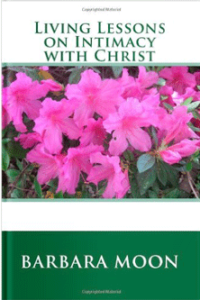 “Iron sharpens iron, so one man sharpens another.” Proverbs 27:17 When we are growing love bonds with others, their love for us will bring up things we need to look at in ourselves, and vice versa. We need to see this as a good thing and not run away from building a love bond for fear of seeing a place we need to grow or some pain we need to work through.
“Iron sharpens iron, so one man sharpens another.” Proverbs 27:17 When we are growing love bonds with others, their love for us will bring up things we need to look at in ourselves, and vice versa. We need to see this as a good thing and not run away from building a love bond for fear of seeing a place we need to grow or some pain we need to work through.
Love bonds
God does the same thing with us. When we get close to Him, we will see places we need to grow. But He does not condemn or punish us for these rough places; He shows us gently. Likewise, in our love bonds with one another, we want to work out kindly what gets brought out in each other. All of us have hidden attitudes and motives that we’re not aware of until a close loved one helps us see them—or aggravation brings them up.
When, after living more or less alone for ten years, I moved in with my friend, Margie, God showed me that I had become accustomed to being non-relational at times, mostly because I could do whatever I wanted to do and didn’t have to talk very much. Now I had someone come in from work each night who wanted to talk and I needed to be ready to interact and hear about her day and share life with her.
God uses people to teach us about love bonds
If we’re willing, God uses the people to whom we are close to teach us much about love. Because it’s inevitable that we will get annoyed by a friend’s or loved one’s quirks, we will have many opportunities to practice loving others unconditionally. Loving others in spite of their quirks is proof of a love bond because we allow each other both positive and negative emotions without breaking the bond. Sharing life in love bonds means the bonds work any time, and we are willing to grow where needed. Everyone benefits as they work through problems and return to joy.
When there are love bonds, it’s easy to say to those who need God, “We’re part of a family that never ends, and we want God to use what we have with Him and others to bring you into that family.” Everyone needs unconditional love and giving it changes both the giver and the receiver.
Application
Do you know when you are being non-relational? Or when you don’t want to be bothered or share life at that moment? Begin to notice when you don’t want to be with someone you usually like to be with. Do the “tapping exercise” from devotion Colossians 3:15 in the chapter on Rest and Peace to get your relational circuits back on. Notice which quirks you have that might be annoying to those around you. Allow God to bring you through to new places of love. Purpose to overlook at least one quirk from another person you love.
Other posts from Living Lessons:
From Living Lesson on Intimacy with Christ Chapter Eight
(Tapping exercise taken from Belonging Facilitator Workbook, Ed Khouri, E. James Wilder, Shepherd’s House Inc. P.O. Box 40096, Pasadena, CA 91114 page 59; www.thrivingrecovery.org )


[…] off and on as we learn to bond securely with our mother. How bonding works and doesn’t work is another blog, but for this one, I just want to focus on the difference in this attachment pain that does not […]